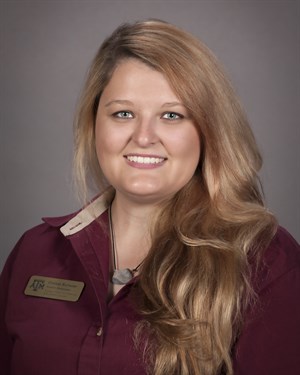 A few days ago, six fellow classmates and I gathered to have a catered lunch from a College Station favorite, Blue Baker, with our three faculty mentors. Every now and then we meet to discuss current happenings in the vet school and receive some sage advice about developing our future careers. On this occasion, being mid-semester, spring break and summer plans were big topics of conversation.
A few days ago, six fellow classmates and I gathered to have a catered lunch from a College Station favorite, Blue Baker, with our three faculty mentors. Every now and then we meet to discuss current happenings in the vet school and receive some sage advice about developing our future careers. On this occasion, being mid-semester, spring break and summer plans were big topics of conversation.
Most of us are planning on catching up on sleep and TV shows during our Spring Break week, but a few relayed some exciting travel plans for sunny destinations; conversely, I know quite a few students and friends who are choosing snow for their week away.
As for me, the mountains will have to wait until summer, when I plan to stop by my parents’ home in Colorado before hopefully heading off to a veterinary student internship!
Last summer, I spent the majority of my time at home in Colorado, helping out with my family’s ever-growing ranch of animals and getting some valuable shadowing experience in equine sports medicine. I’ve been an avid equestrian since I was in diapers and learning more about some of the injuries horses sustain from show jumping and dressage has been a longtime interest.
Since last fall, however, I’ve been contemplating what to do with this summer, and in January, I took the plunge into preparing applications for what I call my “oddball interest”—primate medicine. I was first exposed to the study of primates as an undergraduate, researching a variety of social and cognitive behaviors in capuchins and hamadryas baboons that were housed on my school’s campus. I found it incredibly fascinating and ever since have wanted to explore the veterinarian’s role in caring for these species.
When most people hear primates, they think of zoo medicine; however, primates fill a huge area of regulated laboratory research. Subsequently, veterinarians are utilized to help manage their care and headline study design and publication. This practice is incredibly important in terms of understanding mechanisms of disease and improving treatments for everything from infectious organisms to pathologic disorders of the heart, all of which can be applicable to human medicine.
My goal for this summer is to receive mentorship from practicing board-certified laboratory animal veterinary specialists to better learn about the ins and outs of this career path. I reached out to four institutions with programs specifically designed for veterinary students interested in learning more about primate medicine and research. Each program had slightly different requirements, and I felt like I was applying to vet school all over again! Preparing a resume, writing personal statements to fit the individual programs, asking trusted individuals for letters of recommendation, and then waiting, waiting, waiting for news….
Fortunately, I have just heard back from the first of the four, with an offer to interview over spring break! I am incredibly excited; so please keep your fingers crossed for me!
